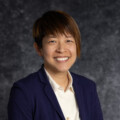Citizen Science in Public Health: A Pathway to Inclusive Policy Development
Innovative public health solutions are crucial as global health challenges continue to shift and grow worldwide. Our recent study published in BMJ Global Health emphasizes the importance of citizen science in creating effective public health policies. At HealthAI, we believe in the power of collaboration to answer the urgent need to regulate AI in health. By including diverse communities in discussions that shape the regulatory landscape for AI in health, we are committed to building trust and increasing adoption of Responsible AI solutions in health.
We wanted to explore the readiness and awareness of underrepresented communities to engage in citizen science, particularly how digital tools can aid their involvement in health crisis projects in low- and middle-income countries.
Here’s what we uncovered:
The Findings: Untapped Potential
Over 2912 people across nine countries participated in our study through focus groups or surveys.
While awareness of citizen science initiatives related to health outbreaks is generally low in countries like Bangladesh, Indonesia, the Philippines, Cameroon, and Kenya, there is considerable interest in participating, particularly through digital platforms.
Validating Community Voices
The first step is recognizing the value of community input into public health. Citizen science offers a bridge, connecting the lived experiences of individuals with the strategic objectives of health initiatives. By validating and integrating these voices into the policy-making process, we ensure that health strategies reflect community needs and are more likely to be embraced and implemented successfully.
Empowerment through Engagement
Digital platforms are a promising tool for facilitating this engagement, offering a means to collect data safely and efficiently while empowering participants. However, this must be tempered with a commitment to inclusivity, ensuring that the digital divide does not sideline vulnerable populations.
Inclusive Strategies for a Healthier World
The call for inclusive strategies echoes the pressing need to make citizen science accessible to all. This means developing solutions that actively remove participation barriers, whether technological, educational, or cultural. By ensuring that every segment of the population can contribute to citizen science projects, we enrich our understanding of public health needs and enhance the effectiveness of health interventions.
Looking Forward: Implications For Policy, Research and Practice
The implications for public health are clear: integrating citizen science into health strategies offers a path towards more dynamic, effective, and community-responsive health policies. As health professionals, we must create supportive frameworks acknowledging the value of citizen science, fostering an environment where community-led research efforts are welcomed and seen as essential components of all aspects of public health development.
The journey of integrating citizen science into public health policy, research, and practice is just beginning. As we navigate this path, the insights from communities worldwide will create a healthier future and empower individuals, making them active participants in the pursuit of global health. The message is clear: when it comes to shaping the future of health policy, the community’s voice is not just valuable—it’s essential.
If you want to know more, please see our paper Building citizen science intelligence for outbreak preparedness and response: a mixed-method study in nine countries to assess knowledge, readiness and feasibility on the BMJ Global Health website.
Photo: Tom Chen on Unsplash.
Reach Out to Us
We're here to help improve and we want to hear from you.
Got a question or an idea? Want to work with us? Fill out this form, and we'll get back to you quickly.
